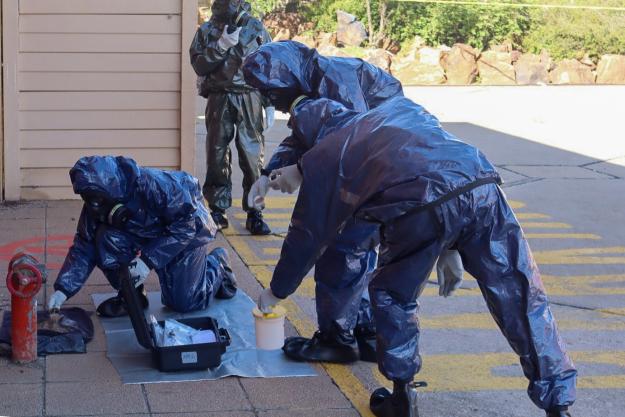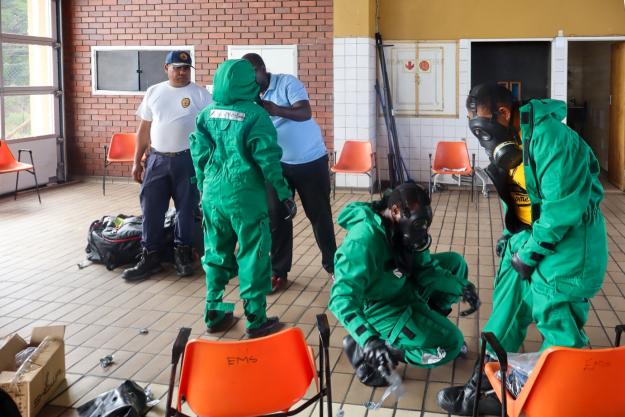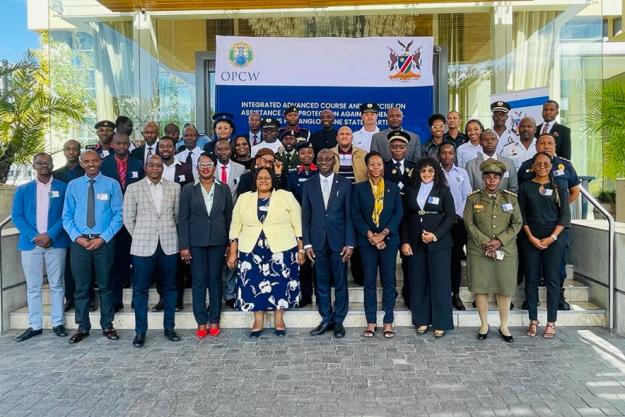To support the development of effective chemical incidents response capabilities in Africa, the Organisation for the Prohibition of Chemical Weapons (OPCW) provides advanced trainings that equip responders with the knowledge and skills to handle diverse scenarios related to chemical emergency response.
The OPCW Technical Secretariat and the Government of the Republic of Namibia co-organised the Integrated Advanced Course and Exercise on Assistance and Protection against Chemical Weapons for Anglophone States Parties in Windhoek, Namibia. The training took place from 11 to 16 March 2024.

This course is a continuation of the Anglophone Training Cycle, which started in 2023. During the course, participants received hands-on training in chemical emergency response in a range of non-conventional enclosed and open environments. They refreshed their knowledge acquired in the preceding basic level training and expanded that knowledge to include practical Tabletop Exercise scenarios, as well as more comprehensive chemical emergency functions.
Participants planned and executed responses to four different scenarios with the aid of live simulant chemicals and using full protective equipment. The scenarios challenged participants with the intricacies of both responding to and managing the incident, decision-making, and collecting samples in open-air and enclosed locations. Each scenario had distinct challenges regarding the evacuation of civilians, contamination containment, and communications.

"Namibia, and by extension, all African States Parties represented at this workshop, appreciate the support from the OPCW to build capacities in the implementation of the Convention in Africa," said Lucia Iipumbu, Namibia's Minister of Industrialisation and Trade.
The training was attended by 29 representatives from ten OPCW Member States: Burundi, Kenya, Lesotho, Malawi, Namibia, Nigeria, Rwanda, Uganda, Tanzania, and Zambia.

Background
Article X of the Chemical Weapons Convention provides for assistance and protection to a State Party if it is attacked or threatened by chemical weapons.
As the implementing body for the Chemical Weapons Convention, the OPCW, with its 193 Member States, oversees the global endeavour to permanently eliminate chemical weapons. Since the Convention's entry into force in 1997, it is the most successful disarmament treaty eliminating an entire class of weapons of mass destruction.
In 2023, the OPCW verified that all chemical weapons stockpiles declared by the 193 States Parties to the Chemical Weapons Convention since 1997 - totalling 72,304 metric tonnes of chemical agents - have been irreversibly destroyed under the OPCW's strict verification regime.
For its extensive efforts in eliminating chemical weapons, the OPCW received the 2013 Nobel Peace Prize.






